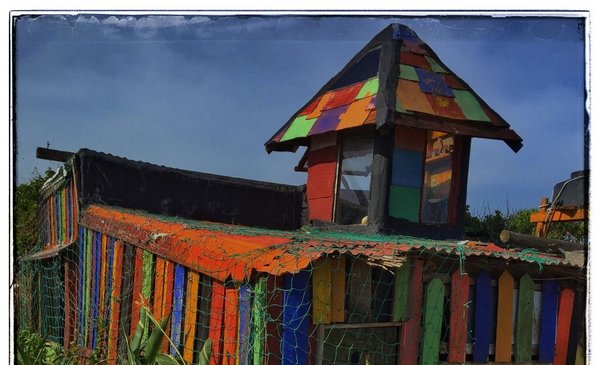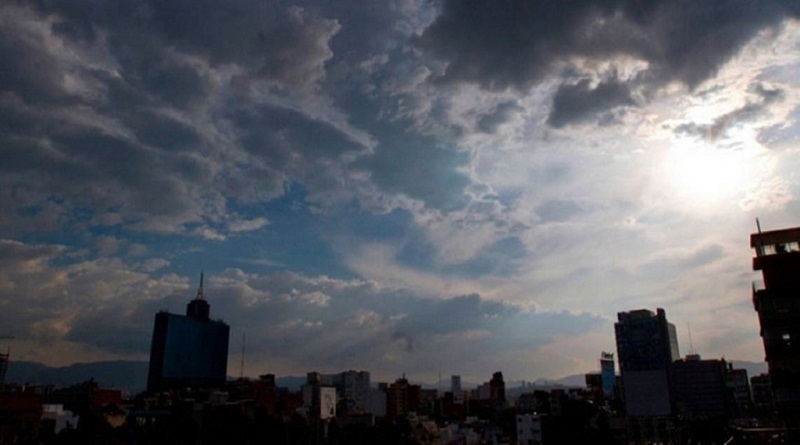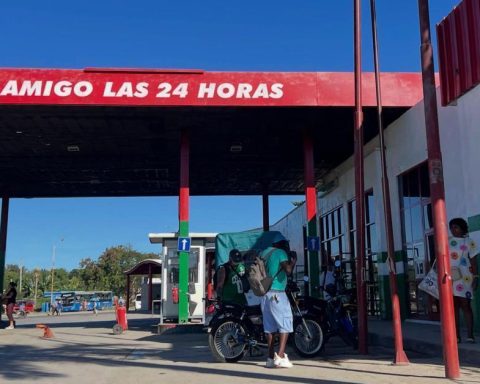A field divides the South beach from the North, the streets do not exist, the grass mixes with the sand. Cape Polonio It is a magical place that, despite the human invasion every summer, maintains its natural landscapes with great vanity. For tourists who like nature, Cabo Polonio has practically everything: some white sand beaches and crystal clear green water, sighting of sea lions and almost no light at night. The zero light pollution of the place, which is illuminated by homemade candles at night, offers a movie spectacle with every clear sky. Cabo Polonio is a place where it is enough to raise your head to see the milky way or mars with perfect definition. But that’s only if it’s cut thick.
–The behind the scenes of the Cape is not what it seems –said an employee from one of the main inns of the spa.
He said that before working in that inn, I had spent two weeks in a hostel located towards the North beach “doing a volunteer service”. That is to say: working in exchange for food and a place to sleep.
–We slept (the “volunteers”) in tents and they gave us two meals a day. They didn’t pay us. I lasted two weeks and left.
His partner left San José with the same intention. Arrive at Rocha to “season”. He left with a friend “by hitchhiking” and they arrived in Valizas.
They walked across the dunes that separate the two spas and They came to Cabo Polonio in search of an opportunity to sleep and eat in exchange for hours of work. “Luckily” they got paid work at that inn, they said.
–It’s a good thing you left there, it was horrible to sleep in that tent –the friend who had had experience as a “volunteer” commented.
41 kilometers from Cabo Polonio, a young woman of about 20 years I painted the external wood of the second floor of a hostel with varnish, climb on a ladder. It was nine at night and the pot of paint was running out.
“I ran out of paint,” he told the owner of the accommodation at the spa in Punta Rubia.
“There’s another can down there,” the woman replied, pointing to a shelf in the hostel’s shared kitchen.
Seeing that there were new guests, he introduced himself.
-Hello! I’m Camila*, I’m volunteering here, where are you from?
“Volunteers” do all sorts of choreslike the employees of any inn or hostel, but they don’t get paid. Rather, The deal works like a barter, something that is not regulated in Uruguay and that leaves a legal vacuum for this type of agreement.
These young people are in charge of the cleaning, reception and organization of accommodation in exchange for food and a place to sleep, even if it is in a tent on the side of the establishment.
In Neptunia, Cannellonithe owner of a hostel that also works with volunteers, told The Observer that he regime is to “collaborate” a minimum of three days and a maximum of 15. According to what he said, he asks the “volunteers” to They work an average of three hours a day cleaning the bathrooms, tidying up the rooms and the hostel in general.
But they also carry out other types of maintenance tasks such as painting the place, especially when there are not too many guests. “Sometimes they offer painting or dance workshops, for example, because many times they are artists. So they are given a space so they can make money by offering classes on something they know,” said the owner of this accommodation in Canelones.
–Is accommodation included in volunteering?
–When rooms are available, you are offered a room. In Carnival, for example, everything is reserved so they are given a tent with a mattress.
And what about the meals?
–No meals, but you can still use the hostel’s shared kitchen. They can use all the facilities, the pool…
–And this regime does not create a problem for you with the Ministry of Labor?
–No, because there are no fixed hours, there is no exchange of money. I am the owner and I also clean. There are only four rooms, so the volunteers are like family. In addition, it is a rich exchange from the social, they integrate into the community.
What does the regulation say about volunteering?
The deal is a “win-win”, both for the hostel and for the volunteer, who gets a place to stay for a few days while on a trip, because they are looking for seasonal job experiences or simply to spend the summer.
However, a head of the Ministry of Labor and Social Security (MTSS) stated that these types of agreements are not regulated in Uruguay. Volunteering “has to be non-profit, for public good purposes, otherwise it cannot be done”he pointed.
This type of unpaid work “replaces formal employment and, therefore, must be developed within the programs of public institutions. In Uruguay the salary cannot be 100% in kind”added the MTSS sources.
In this sense, Law 17,885 considers a volunteer as a person who offers his time, work and skills “for public good purposes” within non-profit non-governmental organizationsa category in which hostels are not included.
In turn, the law also establishes that the services of volunteers “They may not be used to replace formal jobs or evade obligations with workers.”
Going on vacation in exchange for odd jobs, then, is not “volunteering”: it does not have a public good as its goal, as it could be, for example, painting a school or contributing or sharing certain knowledge in a social cause.
From the MTSS explained that “any irregularity found in an inspection enables the possibility of a sanction” It will depend on each particular situation.
*Camila is the fictitious name of the interviewee used for this note, in order to preserve her identity.


















